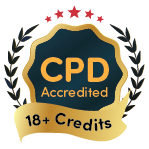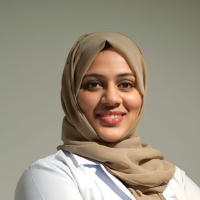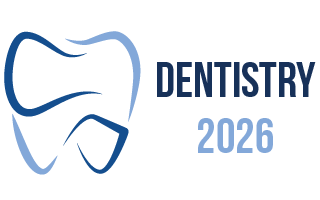3rd European Conference on
Dentistry and Oral Health
May 20-21, 2026 | Barcelona, Spain

Address: Avinguda Del Maresme 78 Ronda De Dalt Exit 15, 08940 Comellà de Llobregat, Barcelona, Spain
Dentistry 2026

Qatar University, Qatar
Abstract:
Background
Reflection makes an experience worthwhile by evaluating and analyzing the mistakes, the right, and our feelings. Reflection plays a crucial role in the academic and professional development of health professionals as it critically analyses an experience for learning and growth. There is limited evidence on the perceptions of health profession students on reflection. This systematic review aims to retrieve, critically appraise, and synthesize the literature on health profession students of reflection in health professions education.
Methods
A systematic review was conducted on all the types of studies that were published in English, with no time limit up to February 2024. The following databases were systematically searched using keywords derived from the research question: PubMed, Embase, ProQuest, and Scopus. The systematic review was registered with the International Prospective Register of Systematic Reviews (PROSPERO) in accordance with the PRISMA guidelines. The quality of the selected studies was assessed using the Crowe Critical Appraisal Tool (v1.4). The facilitators and barriers were mapped onto the COM-B framework.
Results
20 studies met the inclusion criteria. Only qualitative studies and the qualitative phase of mixed-method studies were included in this stage. Students reported that reflection was most effective when provided with rubrics or models of reflection. Trained faculty were considered an enabler for reflection, as they could guide the students through the process and provide feedback. Flexibility in submission timelines and the use of online platforms allowed students to reflect at their own pace and comfort. Group reflections were identified as another effective strategy, allowing students to share diverse perspectives and receive peer feedback to reassess their actions. Common barriers addressed by the students included time constraints, inadequate training for educators, and a lack of privacy.
Discussion
This research offers a comprehensive synthesis of health profession students’ perspectives on reflection, identifying key facilitators and barriers to reflective practice, and informing future curriculum design. The findings of this review offer valuable insights to stakeholders, including program directors, course directors, curriculum designers, and educators, by highlighting potential opportunities to enhance facilitators and overcome barriers to reflection and assessment. To address the barriers, protected time needs to be allocated for writing reflections, with a flexible number of days for submission, and educators must be trained to facilitate and assess reflective practices. These findings will inform the development of reflection frameworks to enhance the engagement of health profession students and improve their learning outcomes.
Biography:
She is a licensed general dentist with over six years of clinical experience in India and Qatar. Currently, serves as a Clinical Supervisor at Focus Medical Centre in Doha, mentoring and training trainee dentists in clinical settings. She is pursuing an MSc in Health Professions Education at Qatar University, expected to complete in 2026, strengthening her expertise in evidence-based teaching, research methods, leadership, curriculum design, and interprofessional education. Her research focuses on reflective practice in healthcare education and interprofessional education, with a commitment to enhancing clinical competency through guided supervision, reflective feedback, and collaborative learning.
